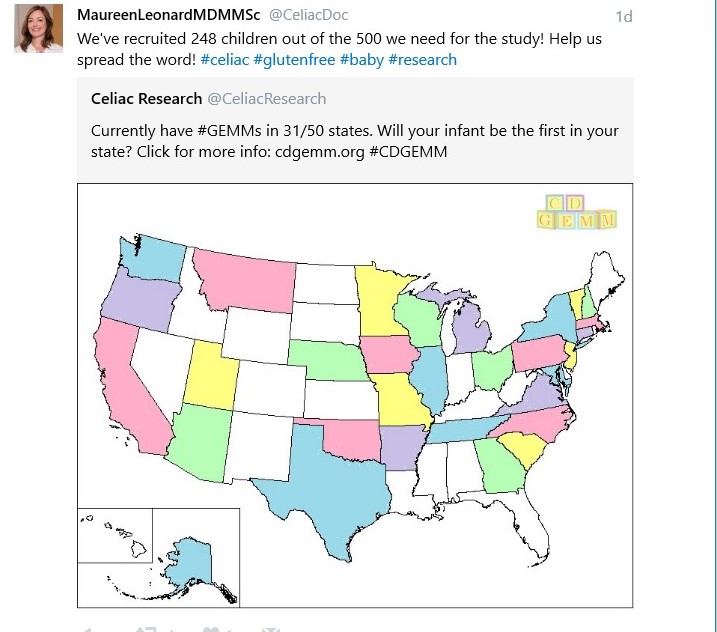Researchers study babies’ stools to determine how celiac disease develops

By Amy Ratner, Beyond Celiac Medical and Science News Analyst
About half the babies needed for a study to determine how celiac disease develops have now been enrolled.
Researchers conducting the Celiac Disease Genomic Environmental Microbiome and Metabolic Study (CDGEMM) report that they have signed up 248 of the 500 babies they hope to follow. The study is also investigating ways to prevent celiac disease from developing.
In the United States, babies from 31 of the 50 states are participating. Maureen Leonard, M.D., clinical director of the Center for Celiac Disease Treatment and Research at Mass General Hospital for Children and a research team member, has turned to Twitter to encourage parents to have their baby become the first in their state to sign up.

Children are also being recruited in Italy and Spain. Infants who are 6-months-old or younger and have a parent or sibling diagnosed with celiac disease are eligible. They will then be followed until they reach five years of age, including periodic monitoring for signs of celiac disease. Children with a first-degree relative who has celiac disease have an 8 to 25 percent greater chance of developing the condition compared to the general population.
The first pilot analysis for the study is currently being conducted using stool samples from a subgroup of babies. The small subgroup includes infants who are at high and standard risk, based on the HLA-DQ2 and DQ8 genes for celiac disease, as well as a few infants who do not carry the genes and are not at risk of developing celiac disease.
Researchers want to compare the microorganisms found in the infants’ samples based on four categories: genetic risk for celiac disease, whether the babies were delivered vaginally or by caesarean section, whether they were breast or bottle fed and their history of antibiotic exposure. The study is looking at how these factors influence the developing microbiome.
Overall, researchers say they have looked at more than 600 poop samples.
You can read more about the study here, including information on how to enroll your baby.
Opt-in to stay up-to-date on the latest news.
Yes, I want to advance research No, I'd prefer not to